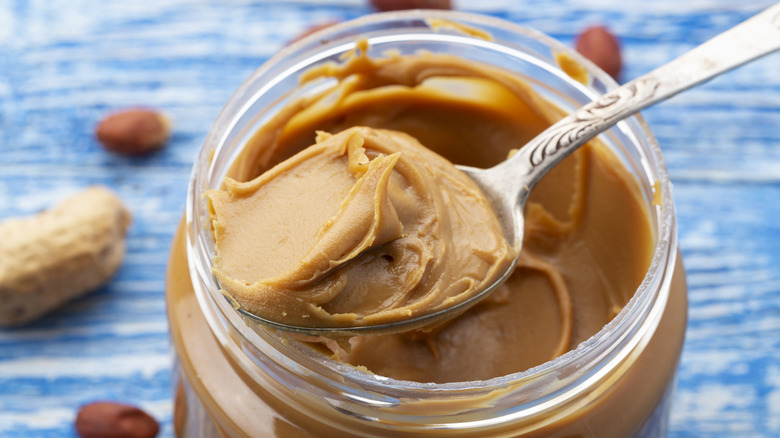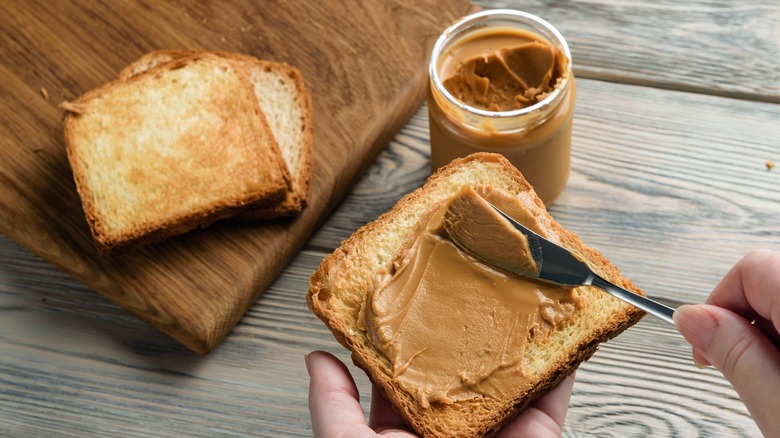What Happens To Peanut Butter When It Starts To Expire
Peanut butter is one of the more shelf-stable condiments available. With its high caloric density and impressive protein content, peanut butter is truly an affordable, all-purpose spread and various peanut butter sandwiches from the Great Depression can attest to its utility and versatility. Perhaps in households that use it everyday, there's no need to worry about having a jar of peanut butter expire before you can finish it. But for everyone else, there is oftentimes a jar of peanut butter sits in the pantry past its prime.
But what happens to peanut butter after its best-by or use-by date? When peanut butter passes its best-by date, it shouldn't negatively affect your health, according to food science professor Maribeth Cousin (via Live Science), and should be safe to eat unless you've accidentally scraped the spread with a jammy knife or a spoon you've licked, which causes cross-contamination, per Martha Stewart.
According to Healthline, peanut butter has such low moisture and high fat content that it creates an environment that is far from ideal for bacterial growth. It even contains stabilizers that help prevent separation and fight microbial growth.
Peanut butter begins to smell
While peanut butter is safe to eat past the labelled date, both natural peanut butter and regular peanut butter begin to give off an unappetizing odor due to a process called rancidification, wherein oils become rancid due to oxygen (via Live Science). You can even observe this happening to a bottle of vegetable oil that's been sitting in your pantry for a year — its smell becomes a bit too strong and it affects anything you cook in it, explains Live Science. Any products with unsaturated fats, which allow them to be kept at room temperature, can deteriorate with oxygen, and this creates smelly by-products.
Should you refrigerate peanut butter to extend its life past the labeled date? Well, you should definitely refrigerate natural peanut butter, which has fewer stabilizers than regular peanut butter and is less shelf-stable, per Food Network. But the process of rancidification really begins when you remove the air-tight seal of your jar of peanut butter. Will it hurt you to eat peanut butter beyond the date on the package? Not quite. But, you will definitely taste the rancidification on your peanut butter and jelly sandwich.
So keep track of when you open the jar, as well as the best-by date; A quick whiff will also tell you if it's a good idea to toss your peanut butter.

